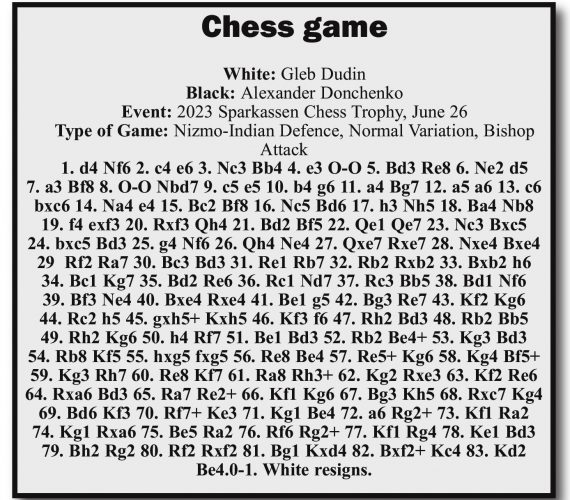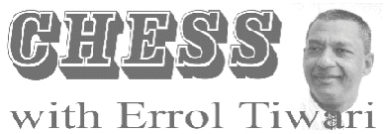 A popular American newsletter researched and published an article headlined: “27 geniuses with the highest IQs in history”. Two chess players, Garry Kasparov with an IQ of 190 and Judit Polgar IQ 170, from Russia and Hungary respectively, made the coveted list.
A popular American newsletter researched and published an article headlined: “27 geniuses with the highest IQs in history”. Two chess players, Garry Kasparov with an IQ of 190 and Judit Polgar IQ 170, from Russia and Hungary respectively, made the coveted list.
I am surprised the world famous Bobby Fischer did not make the list. Fischer possessed an IQ of 160, according to Frank Brady in his book Profile of a Prodigy. He was an extraordinary chess player; an indefatigable worker. There was a blackout in the midst of an international tournament and naturally all the chess clocks were stopped until the lights were restored. Fischer’s opponent objected to his clock being stopped. He said Fischer had the chess board in his head and he was calculating variation after variation until it became a tree of variations which included ordinary moves which he discarded right up to the impossible candidate moves. When the tournament director approached Fischer, he said it was true and agreed his clock should be restarted in the darkness.
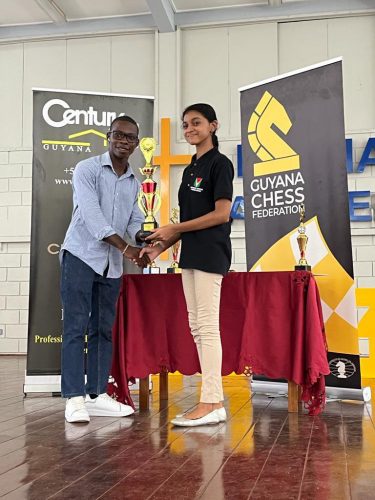
Under-16 women’s trophy
I have never heard of or met a Guyanese chess prodigy. However, during the mid 1990s, I taught chess free, in an unstructured fashion, at Queen’s College for a short while. That changed later. There was a girl in my chess class who placed third in the world in the immensely popular SAT exams. The last I heard of her, she was working for the space programme at NASA.
Kasparov, in his writings, noted that he learned the capitals of each existing country by the time he was about five or six years old. And he also learned to spell the names of those capitals. He became the youngest world chess champion ever at age 22. Serious chess players have extraordinary memories.
Fischer played a chess tournament in Argentina. Seven years prior to that he had played a game with a grandmaster who said he could have won the game. Fischer replayed the game from scratch, from memory, and refuted every single variation that he suggested could have won.
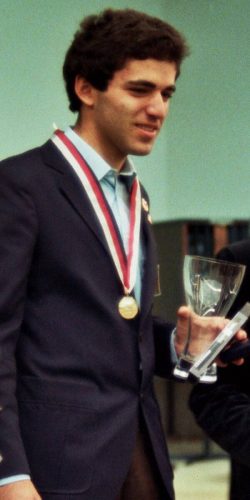
Incidentally, I happen to know two accomplished chess players, Loris Nathoo and Omar Shariff of Queen’s College, who excelled academically. Nathoo achieved stardom in his first national examination and Shariff carried off the prestigious Guyana scholarship. Shariff has a daughter, Sasha, who has represented Guyana in at least two Chess Olympiads, and also wore the women’s national chess championship crown.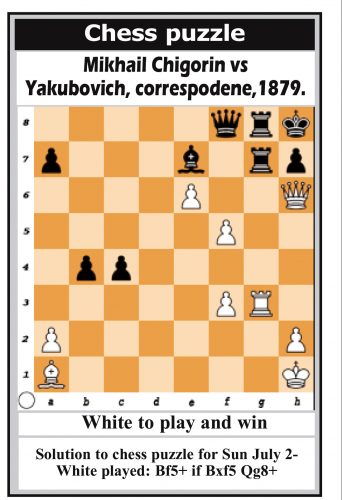
Writing about these matters, I am seriously reminded of my seven-year-old daughter Dominique-Tamara, who also is an academic. I am learning a new chess opening for the national chess championship and Dominique-Tamara approaches me with school books in her hands. I set an exercise for her. In a jiffy she was finished. It was correctly completed. I repeated the scenario a few more times as she was completing the exercises too quickly. Eventually, in frustration, I gave her a puzzle to solve with the words: “Don’t come back without solving this puzzle”.